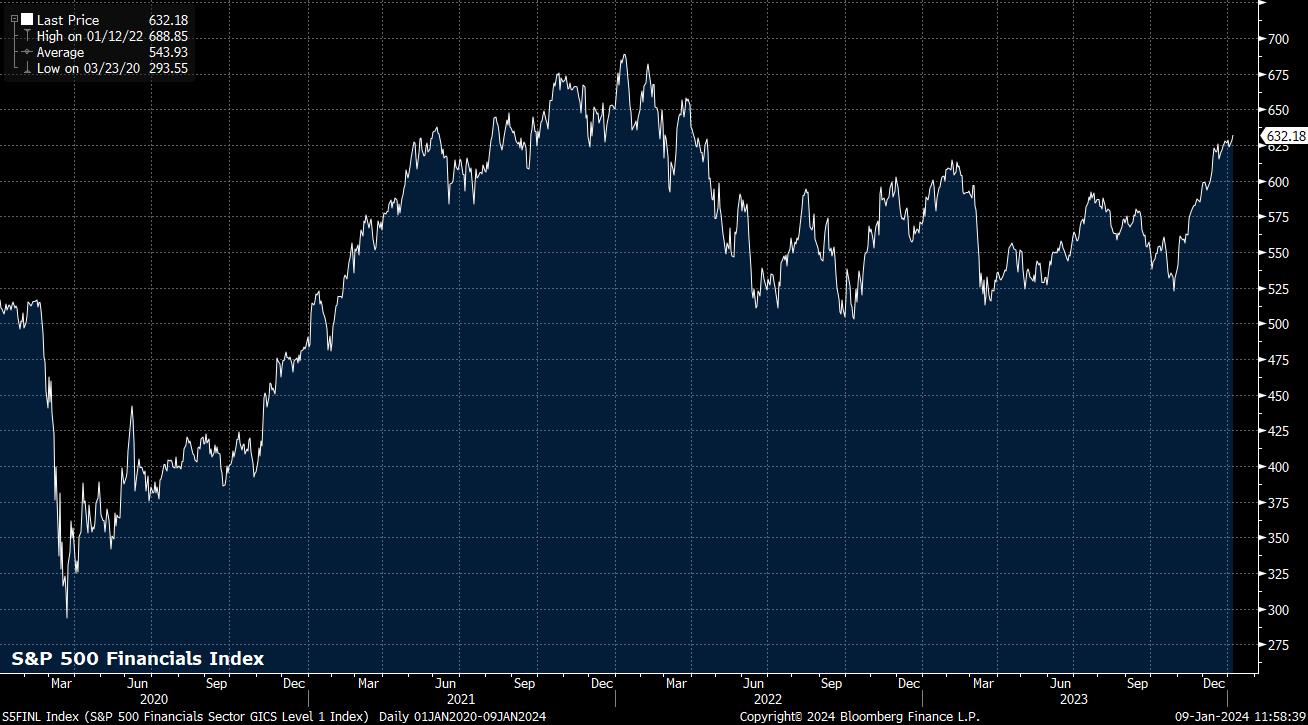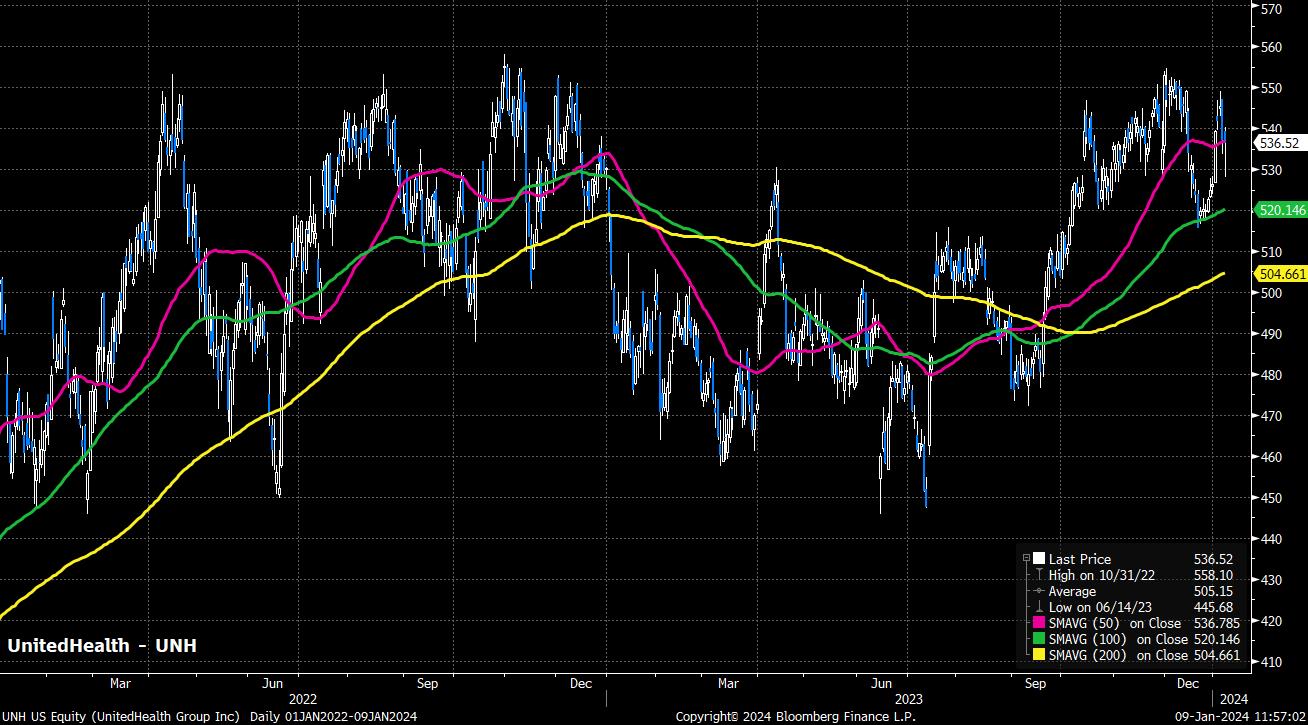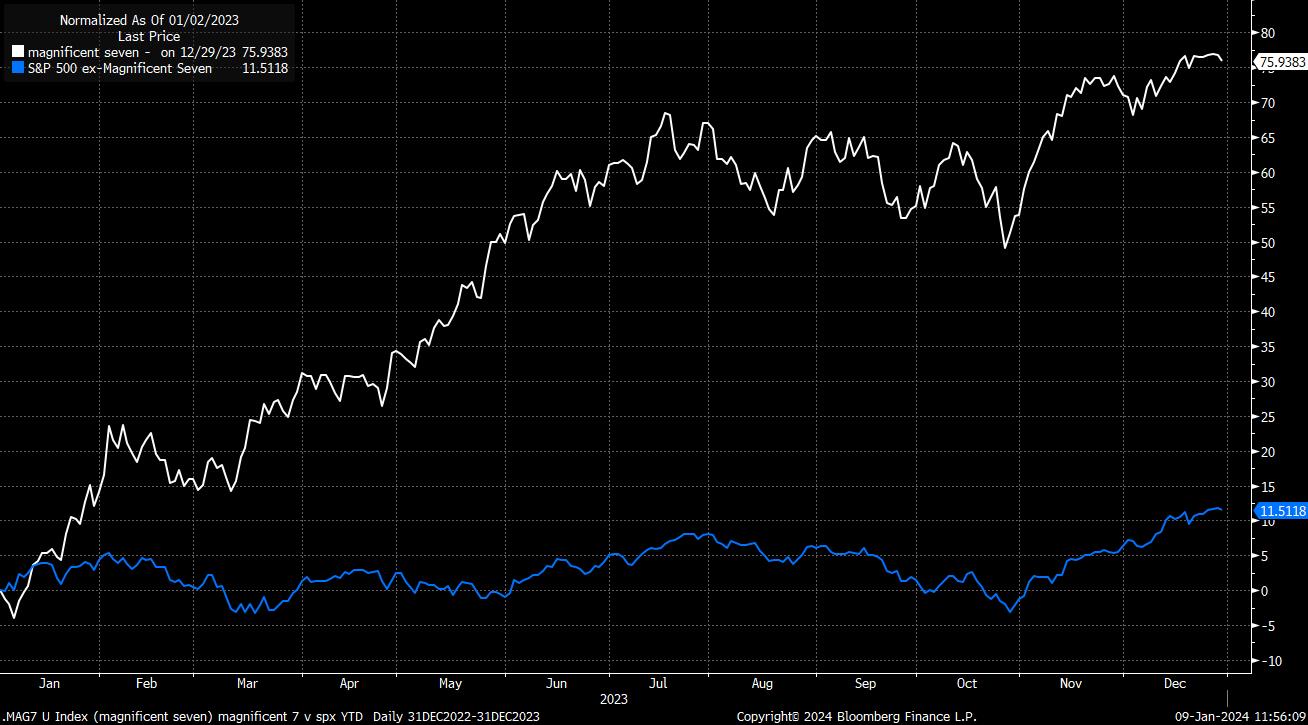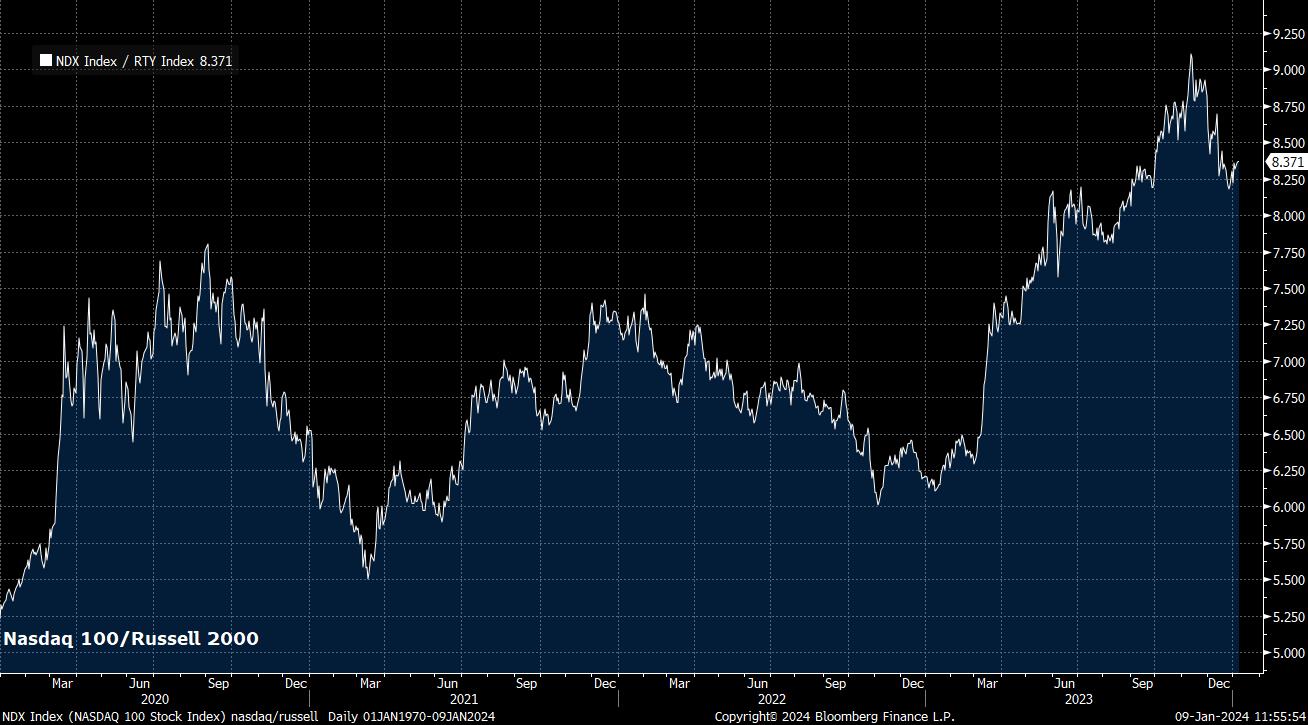- English
- 中文版
For earnings season overall, consensus sees YoY earnings growth of just over 1%, marking the second straight quarter of earnings growth – and firmly marking the end of the 2023 earnings recession – if delivered. Revenue, meanwhile, is seen rising around 3% YoY during the quarter, marking the 12th consecutive quarterly increase.
_spx_v_2024-01-09_11-59-19.jpg)
As mentioned, banks kick off earnings season this week, with BofA, Citi, JPMorgan and Wells Fargo reporting before the open, followed by Goldman Sachs and Morgan Stanley early next week.
There will be several areas under the microscope with bank earnings, besides top- and bottom-line figures. Credit quality will be of particular interest, as the lagged impacts of the Fed’s tightening cycle continue to be felt, even if the macro conversation has moved on to when, and by how much, the FOMC are likely to ease policy this year. The amount of such non-performing loans is set to have risen sharply in the fourth quarter which, coupled with the ongoing dealmaking slump, and one-time charges being taken due to FDIC fees related to the collapse of Silicon Valley Bank (and others) last year, poses a downside risk to earnings in the fourth quarter.
CEO commentary around the aforementioned tightening cycle will also be of particular interest, not only in terms of the outlook that is foreseen over the course of the year ahead, but also the degree of deposit flight (largely into money market funds) seen as a result of the 500bp of hikes that the Fed delivered, as well as how net interest margins (NIMs) are likely to evolve as and when the FOMC begin to ease policy.

The financials sector more broadly has experienced a relatively average last 12 months, with the S&P 500 financials index having gained just shy of 8% over that period. Unsurprisingly, given the regional banking blowup last March, the banks sub-index has fared marginally worse, with the KBW Bank Index having somewhat recovered from the intra-year lows, albeit having thus far failed to reclaim the highs seen just prior to the aforementioned issues becoming evident, and the Fed’s BTFP scheme being unveiled.
_Dail_2024-01-09_11-58-09.jpg)
Elsewhere in terms of earnings season, there are a few other stories worth watching. At broad level, Dow traders – owing to the price-weighted nature of the index – would be well-served by paying particular focus to earnings from UnitedHealth (UNH – 12th Jan), Goldman Sachs (GS – 16th Jan), Microsoft (MSFT – late-Jan), Home Depot (HD – late-Feb), and Amgen (AMGN – late-Jan), with those stocks being the top 5 weighted in the index, accounting for around a third of the index in total, with UNH alone holding a near-10% weight.

Of course, reports from the so-called ‘Magnificent Seven’ will also be in focus, not least owing to the remarkably strong performance exhibited by these stocks last year, and vastly outperformed the remaining 493 constituents in the S&P 500.

While many on the sell-side have been pointing to the likelihood that 2024 marks a year where value and small caps outperform, compared to their mega-cap counterparts, the opposite scenario appears more likely to pan out if, as most expect, economic momentum wanes as the year progresses.
Long Nasdaq/short Russell is a potential spread trade through which to express such a view, though earnings from the ‘big tech’ names aren’t due until late-January/early-February.

Related articles
The material provided here has not been prepared in accordance with legal requirements designed to promote the independence of investment research and as such is considered to be a marketing communication. Whilst it is not subject to any prohibition on dealing ahead of the dissemination of investment research we will not seek to take any advantage before providing it to our clients. Pepperstone doesn’t represent that the material provided here is accurate, current or complete, and therefore shouldn’t be relied upon as such. The information, whether from a third party or not, isn’t to be considered as a recommendation; or an offer to buy or sell; or the solicitation of an offer to buy or sell any security, financial product or instrument; or to participate in any particular trading strategy. It does not take into account readers’ financial situation or investment objectives. We advise any readers of this content to seek their own advice. Without the approval of Pepperstone, reproduction or redistribution of this information isn’t permitted.


